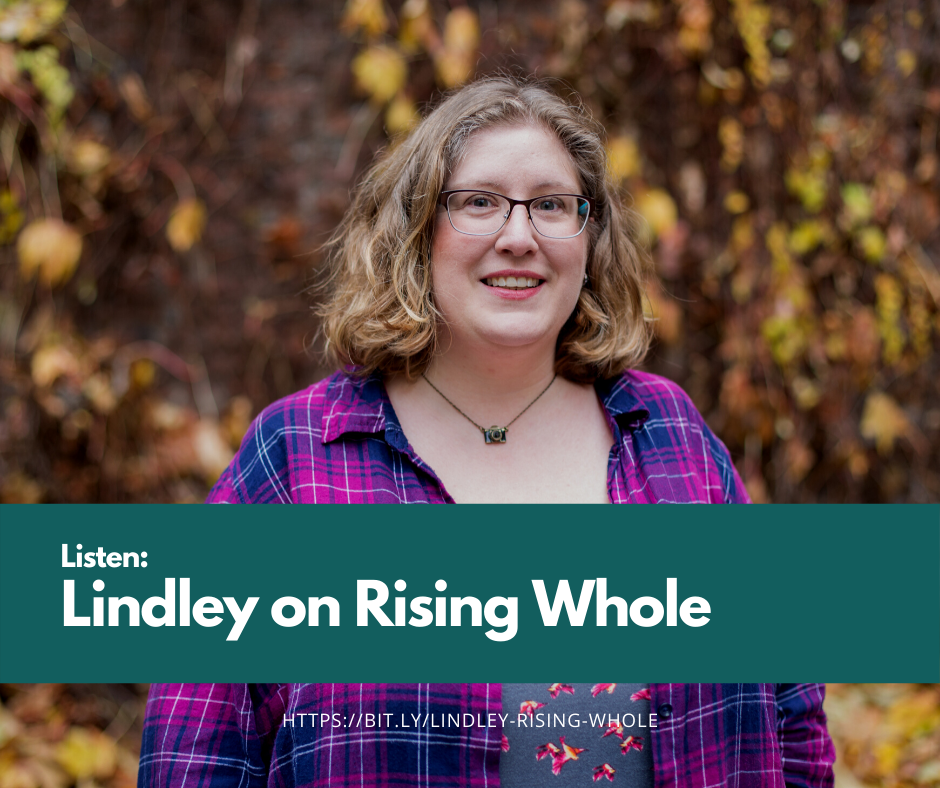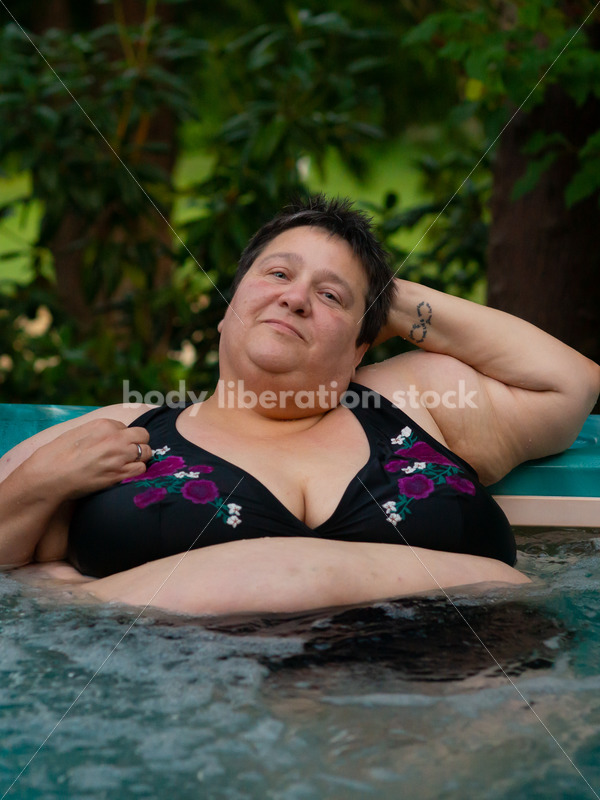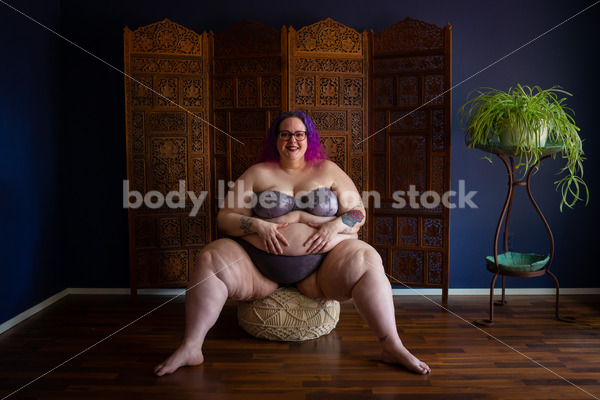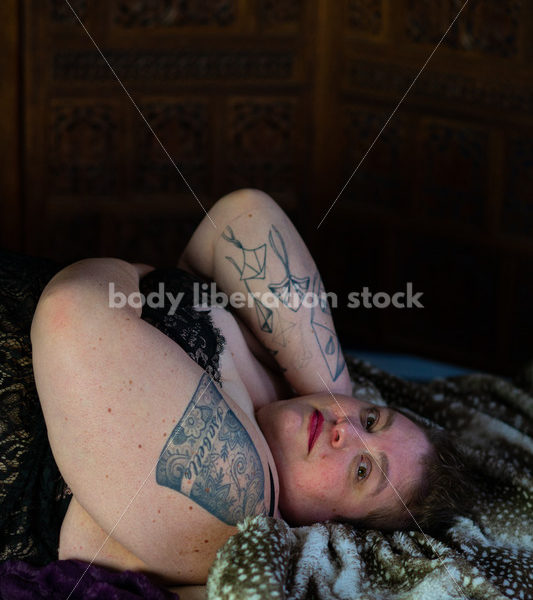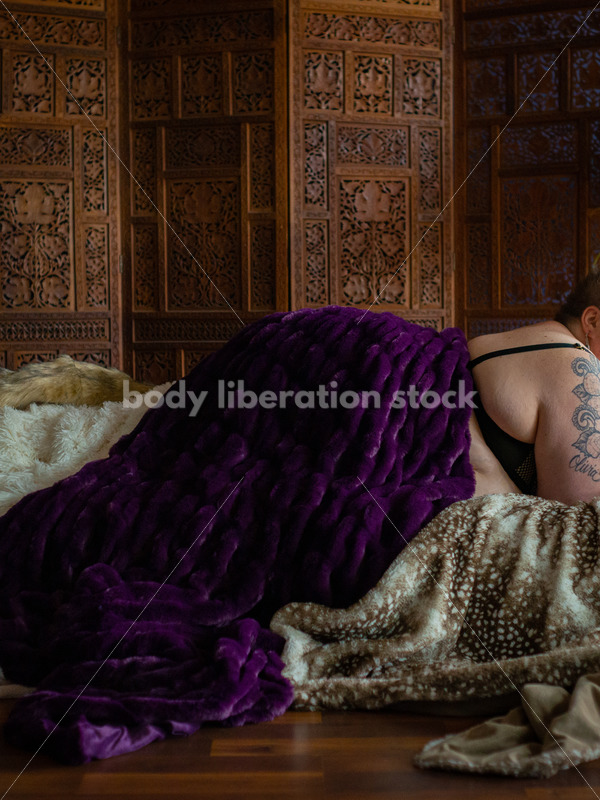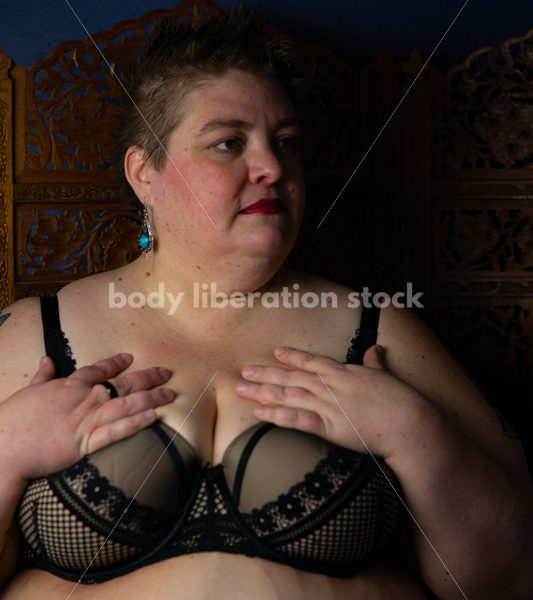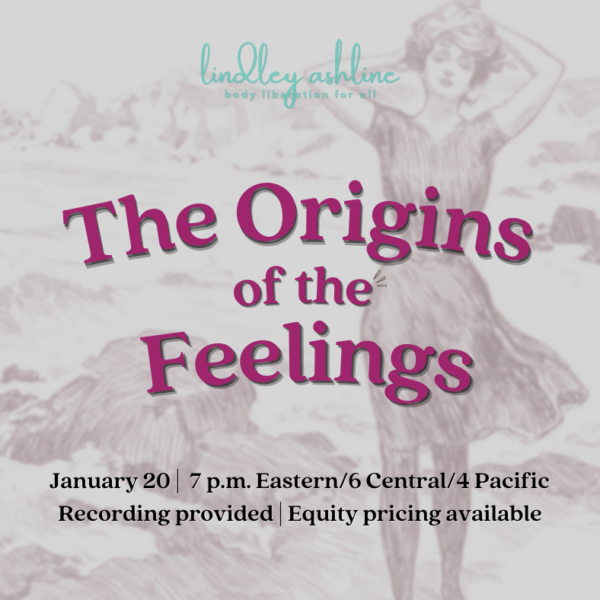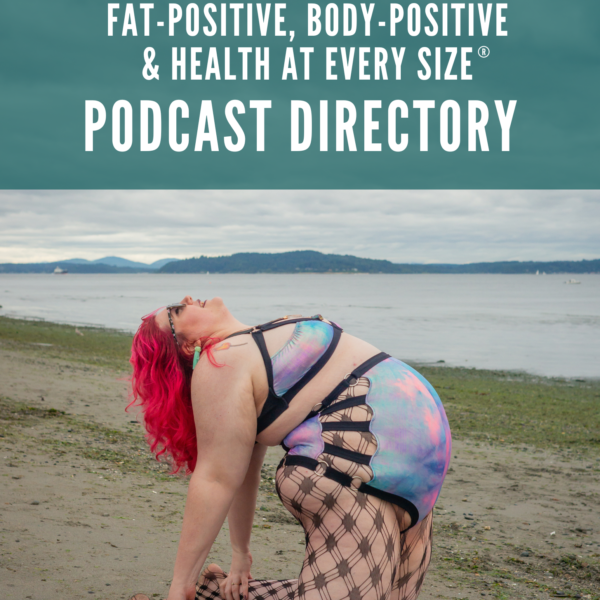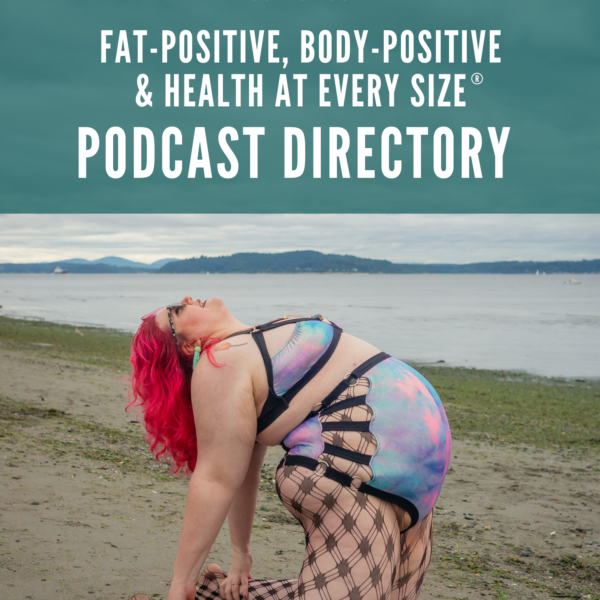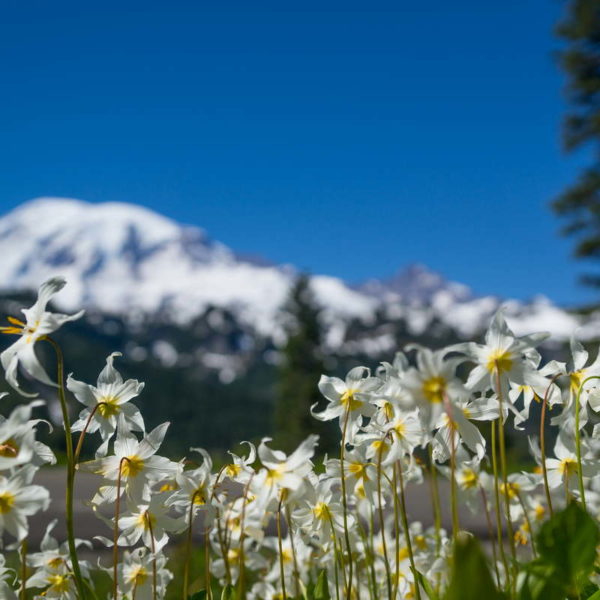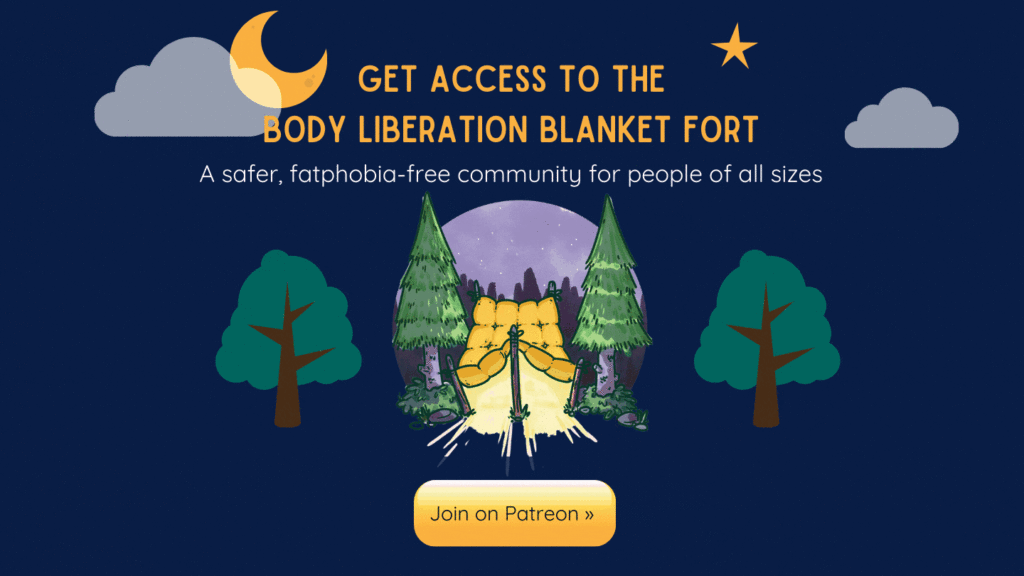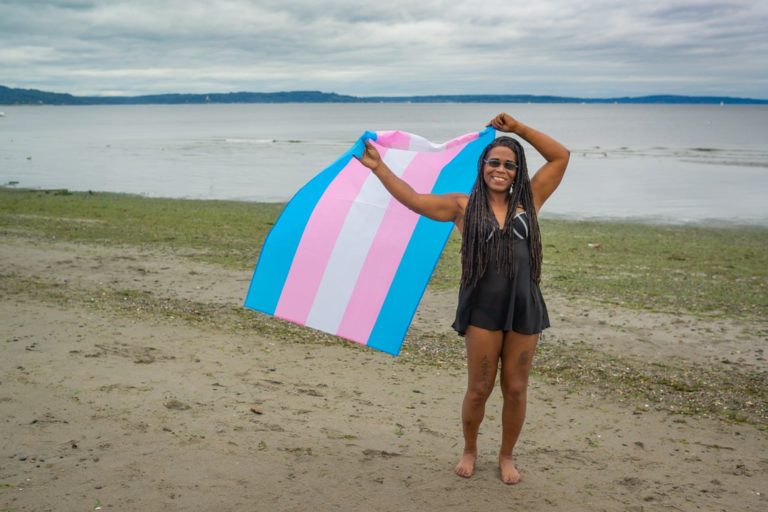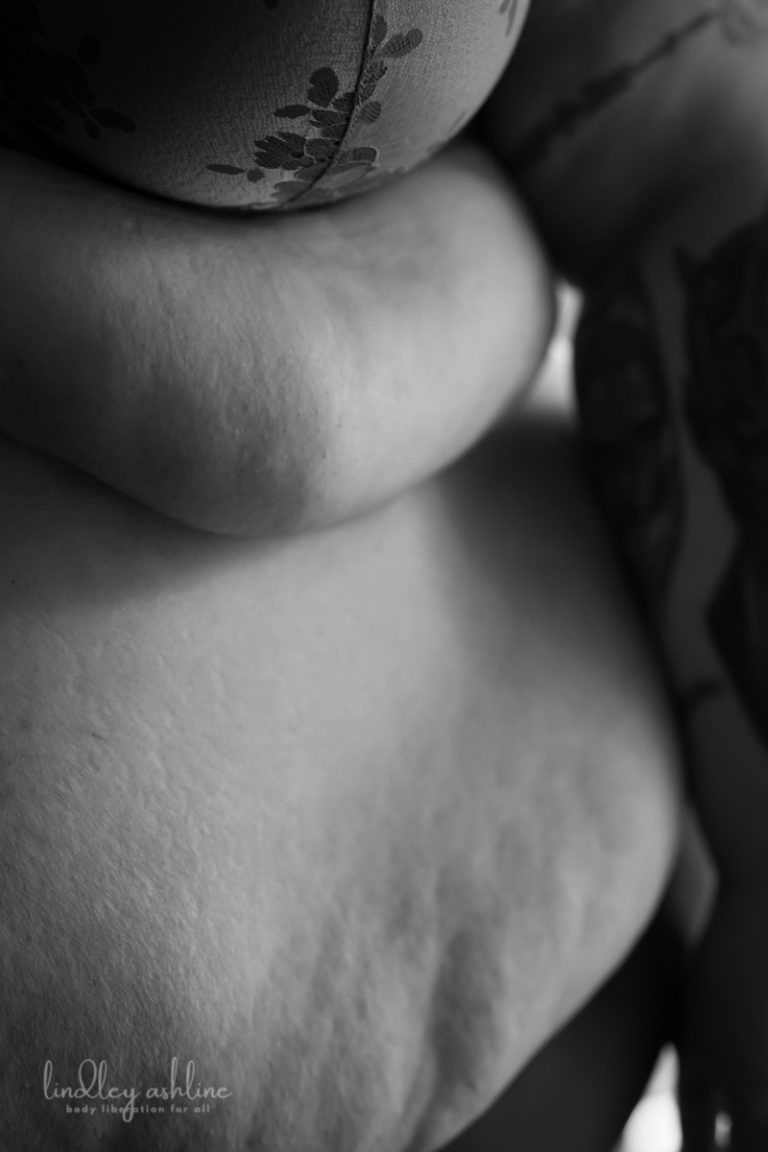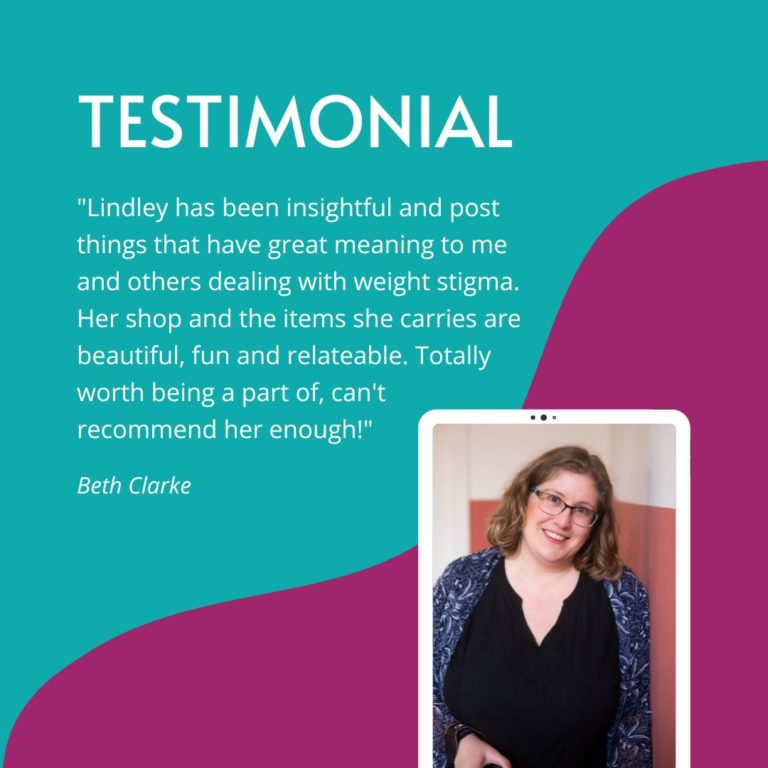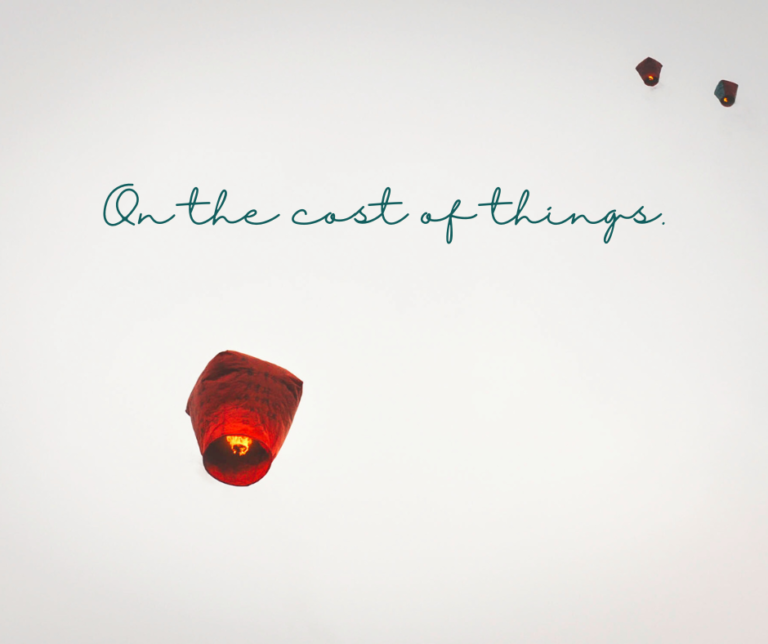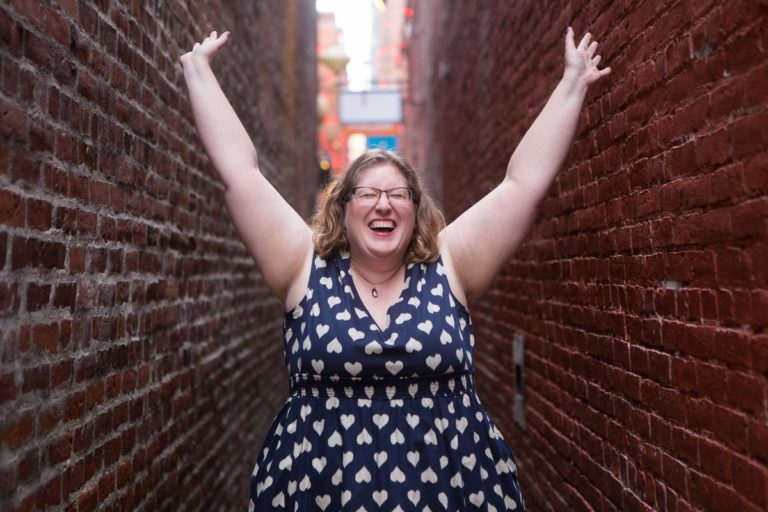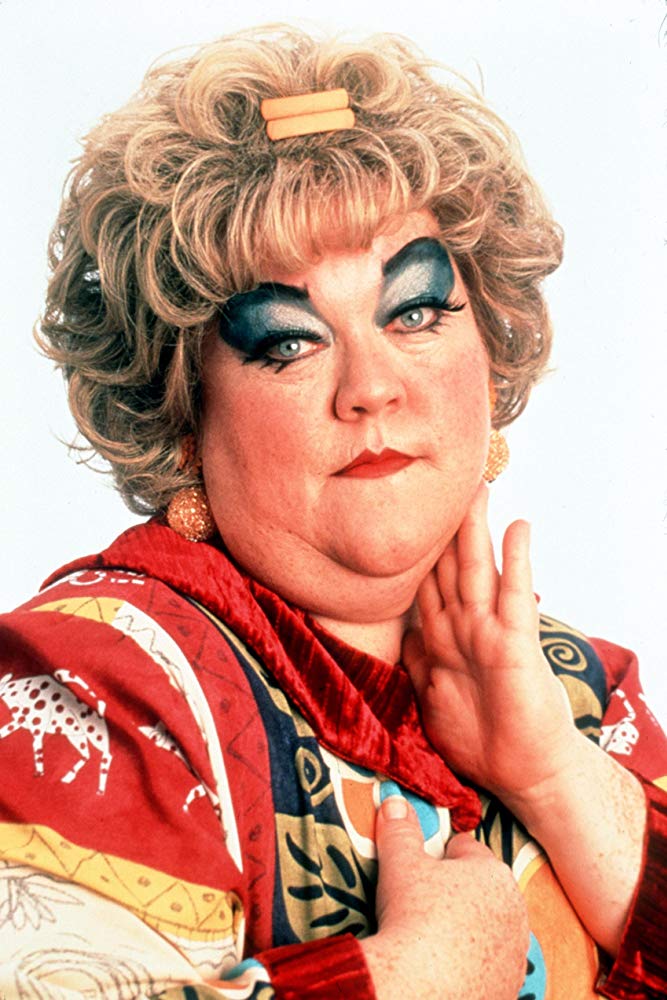LISTEN: Lindley on the Rising Whole Podcast (with Transcript)
On this episode of the Rising Whole podcast, Prim Ormanovich and I talk about how coherency in your business comes from having an underlying ethical framework or cause, and how my own underlying framework led to me splintering my business into many separate parts — and then bringing it together again.
The podcast is no longer available, but you can read the transcript below.
Transcript
Intro: Welcome to the Rising Whole Podcast. I’m your host, Prim Ormanovich. Rising Whole is all about getting out of diet culture and back in your body. Learn to listen to your body so you can live your most powerful life. When we believe we are already whole, complete and perfect, the possibilities for freedom are endless.
Prim Ormanovich: Hi friends! Welcome back to the Rising Whole Podcast. I’m Prim! And today, I speak with Lindley Ashline who is a fat activist and body positive photographer.
And we had such a good conversation. We talked about the western beauty ideal and we talked about the profit and capitalism that is involved in this ideal. And we talked about her work as photographer.
She photographs individuals to help them feel more liberated and in their bodies. And she also takes stock photography to help represent a wider representation of bodies for people like me who want to use them. So I actually have one of her photos on my website that’s been there since I launched it because it’s so important for me to represent—or to me, to me and for me—to represent bodies of all kinds doing the things that I want to offer. I don’t offer what I have to offer for only one kind of body. It’s really for everyone.
And not everyone’s going to feel like it’s for everyone if they don’t see themselves in a space. They won’t feel like that that space is for them. So we get into that with her today.
I won’t blab too much here. But I just want to say thank you for listening. And also, if you could please go to iTunes and leave a rating and/or a review…
And then, also, we are found on Google Podcast and Spotify, Stitcher… all of it. I made extra sure this time. But if you leave a review on Apple Podcast—I guess it’s what it is now—it’s really helpful to me because I had to re-launch the whole show. And so, all of the reviews and ratings from the old show are no longer there. So, if you could please do that just to bring up our exposure, that would be super helpful to me.
Lastly, I will say that this is recorded late in the evening after a long day of being on Zoom for my class all day. And it’s not my most graceful of interviews. I am very giggly and nervous. I stumble over my words a lot.
We also had a few tech issues, so there might just be some inconsistency in the episode. So, I just wanted to put that out there right out of the gates.
New at Body Liberation Stock
But it’s important to me to be just real and authentic in myself. So…
Anyway, let’s hear from Lindley.
♪ [music] ♪
Prim Ormanovich: Hi Lindley, how are you?
Lindley Ashline: I’m good! Thanks for having me.
Prim Ormanovich: Thanks so much for being with me tonight. Let’s just go ahead and get started and tell the listeners a little bit or a lot bit about who you are and what you do.
Lindley Ashline: Okay. Well, what I do is really multifaceted. So, asking me to tell them “a lot” might be a little bit of a dangerous question.
But my name is Lindley Ashline. And I am a body positive and fat positive photographer, writer and entrepreneur. I live outside Seattle, Washington. And I’ll be 40 tomorrow. So that’s kind of a big milestone for me.
Prim Ormanovich: Oh, exciting!
Lindley Ashline: Thank you. Yeah, I’m like, “Woo-hoo! I lived to 40! I’m doing great.”
Prim Ormanovich: Cancer season…
Lindley Ashline: Yeah, yeah… and just the 40 thing, as a person who has a very deep body-positive and fat-positive and photographic background, like I’m really into body just as physical objects, we don’t hear enough about aging or see enough about aging. So experiencing these stages in myself is really cool and being able to think more deeply about them and talk more deeply about them.
But also, as I come up on this milestone birthday, it’s been really cool because I feel like I’m shedding a lot of BS out of my life. So, it’s just really kind of top of mind for me right now. It’s like, “I’m 40 years old. I don’t have to deal with this anymore,” this being, I don’t know, some social expectation or whatever.
Prim Ormanovich: Right, literally anything…
Lindley Ashline: It’s almost a little bit of permission like, “I’m 40 years old. I don’t have to do this anymore.”
So, as you just heard, I’ll be 40 tomorrow. I live in a body that is white, cis-gendered, fat and straight. And I have quite a few personal privileges. I come from a blue-collar background. And that informs a lot of the way I talk about things and think about things. I like to keep things as accessible as possible financially. And language-wise, my writing has to be very simple in the language. I choose to make it the most accessible to people.
I spend my days—not as much right now because, as we’re taping this, we’re in the midst of the COVID-19. And so, right now, I’m not doing any in-person photography at all… which has been kind of difficult because I’ve really, really missed that connection with people. To be a little full of myself, when you’re used to changing people’s lives several times a month, not having that outlet…
And I’m laughing as I say this because it sounds very conceited, but it’s also true, to be able to do that. But I’m really missing that out right now.
But normally, I’m doing both client photography (people would come in, and they do portrait sessions or boudoir sessions, or they have photographs taken for their business or the products that they create. Those are all under client photography), and then I also do stock photography. And that is photographs that people use for their business.
So, if you go online and you look at, I don’t know, maybe health-at-every-size therapist, and you go to their website, and there’s a beautiful photo of a plate of food or someone running on a jogging path or any given photo you see, if it’s professional quality is probably not one they took themselves (because most businesses don’t have the money to do their own photoshoots), so they buy stock photos.
And so, media and the internet kind of run on these stock photos. But the ones that are out there aren’t very diverse. And so, my mission has been to increase the diversity in that—primarily in body size because I focus on fat and plus-sized bodies. But also, I try to get as many folks of color and so on in the photos that I can.
Since the pandemic, I’ve also really been expanding my business in the writing direction because that’s my corporate background. So, I’ve been picking up a lot of writing business lately. And so, you can see that I have all these different things that I do. And it’s a lot of fun to be able to do all these different things.
Prim Ormanovich: Yeah, I can super relate. I’m trying to think of a better way to say “super relate.” But I’m going to go with that. I can super relate to what you said. Did you say it’s multi-faceted in the beginning? Is that what you said?
Lindley Ashline: Yeah!
Prim Ormanovich: I relate to that so much because I do this health-at-ever-size and body-positive work. And then, I also teach yoga. And I’m a writer (and I’m working on a book of poetry right now actually). I’ve always just had my hand in so many different buckets.
And it’s interesting to see. I just interviewed someone that is an eating disorder dietitian and she’s a web designer. It’s just amazing to see how it works so well. And it’s just so cool to see how people weave these things together and how these seemingly unrelated things can really like come full circle and be integrated into a whole person and profession.
And I don’t know! That’s why I love having these interviews and talking to people from so many different backgrounds. And you’re the first photographer I’ve interviewed I think. So yes, it’s super cool!
Lindley Ashline: When you are grounded, or you have a foundation or roots in a specific framework or belief system or, I don’t know, code of ethics, if you’ve got that, then everything that you do branches out of that.
For a really long time, I actually had like three different business brands that I was maintaining. And that became a whole saga. I kind of worked myself into the ground and had this massive piece of burnout. And so, I spent the past couple of years kind of recovering from that.
And part of recovering from that was consolidating. I had split myself out into—you know, we’ll have the client photography. Well, when I started doing stock photography, I just assumed that anybody who was interested in one wasn’t going to be interested in the other. So then, clearly, I have had to create a whole separate brand.
Then I started to run a subscription box which has since been retired. I still run the Body Love Shop that came out of that (although I’m no longer doing the monthly subscriptions). But then suddenly, I felt like I had a third brand. And then, nobody could keep up with everything I was doing because it was all separated. So, I created a fourth brand for the people who wanted to keep up with everything I was doing. Oh, it was so ridiculous!
New in the Body Love Shop
But they were all rooted in the same code of ethics, the same framework, the same unshakable belief in the beauty and worth of every human body. And for me, having that many branches on my tree was too much. I had to sort of—I don’t know, my metaphor is not holding up here. I sort of had to tie a rope around all the branches and come back into the trunk.
And so now, when you find my online presence, you find everything that I’m doing, you find all the branches because that was what I had to do for my own sanity. But it’s all these branches that came out of the same roots because of this one core belief.
Prim Ormanovich: Yes, I have the exact same experience. I had this podcast. It was originally called The Way You Are Project. I think it’s still living out there somewhere. But I had that. And I was also writing a blog on there. And I’ve always run a blog on and off different titles and such. And then, I became a registered yoga teacher, and I wanted to be able to teach yoga in an intuitive way, in an inclusive and body-positive and body-inclusive way.
And actually the pandemic has been very interesting in that manner that it’s been able to—well, the only way people are teaching yoga really is online. So it’s given me a new…
So, I created Rising Whole as a way to tie all of those things that I’m interested in—the podcast, teaching any kind of workshops in the future, the blog, all of that, into one place. Before, it was all over! I had four different Instagram accounts. And I also had a hobby of like nature-dyeing silks and linen and trying to sell that. So I was just all over the place. And I was like, “I needed to do this branding thing and tie it all in.”
It does make it so much easier when you have one place where everything lives. And I find it helpful that I have the same values in all the work that I do because it’s so easy to blend it all together. At the end of the day, I’m here for all people of all body sizes, genders, ethnicities, races, on and on and on. And that is my goal, to have a place that their voices can be heard and their needs to be met.
And so, it’s really interesting that that was your experience, too.
Lindley Ashline: Yeah. And over time, each one of those, sort of rejoining, has been a big process. And so, there are still random things all over. And you know, the subscription box that I was doing, I did, I did a ton of podcasts where I mentioned that. People review to those. And those are linked to the old site.
And so, all those things live out there. I had a previous name for the stock photography business. I had a previous name for my client photography business. And so, all those things kind of still live out there. But my goal has been to make sure that at least those domains lead back to me so that people who say are hunting for the subscription box, or the stock photos, can be, “h, here’s this old name.” And then, when they follow it, it comes back to me. “Oh, okay… she’s got everything there” so that at least there’s some sort of a logical path.
Prim Ormanovich: So, how and when did you get into photography?
Lindley Ashline: Well, I have been doing nature photography for a really long time. I’ve been doing it—well, in some form or another, since I was about five, but not with any sort of intention until about the year 2000 or 2001.
And at that point, I was in college. I love telling the story just because anybody who’s younger than me, it just makes them boggle. My first digital camera, as a kid, I would use like the little disposable film cameras. But I never had a real film camera. So, I came in, I was just the right age to come in at the beginning of digital photography.
And so, the first camera that I used for any length of time intentionally was one that I borrowed from my college because of course they were very, very expensive. And this digital camera literally took a 3 ½ inch floppy disk that you inserted into the camera itself. This thing weighed a ton. It was huge!
Prim Ormanovich: Oh, my gosh! I can’t even imagine that.
Lindley Ashline: And of course, it only held like… don’t know what, 10 or 20 photos on that floppy disk. I still have some of those photos. I mean, they were not very good because I was just getting started. But it’s really cool to look back and go, “This came off of a floppy disk.”
So yeah, I’ve been doing nature photography for a really, really long time… and just entirely self-taught, just “Let’s see what happens if we do this. Let’s see what happens if we do this.” And I think I’ve taken one or two in-person photography classes over time. And then, when I got serious about doing portrait photography, I took some online courses for that. So, I don’t have a degree or anything. But most of it is just learning over time.
And so, in about 2014, my husband and I moved from Virginia to Washington State. And it was a move that we really wanted to make. But neither of us had a job that we could take with us. I had been in some kind of crappy office jobs in my corporate life. And I was like, “It’s time to find my dream job. Where am I going to go?”
And I wasn’t even considering starting my own business at that point. But I was going to find the perfect office job, preferably one that would let me work remotely for some health reasons. I vetted a ton of different jobs. I did a bunch of interviews. And I found what I thought was going to be the one… the job where I was going to stay for 20 years.
I stayed for two years. I was miserable. I cried all the time. I was incredibly dysfunctional. I know! I had thought I had found the one. It was abusive, plain and simple.
Prim Ormanovich: Was it remote? Or was it in-person in Washington.
Lindley Ashline: The office that I was working in was based out of one of our local suburbs here. And so, occasionally, I would go meet people in person to have a meeting, but it was primarily remote. And the remote format works really well for me because I’m very self-motivated. So that also meant the transition into running my own business was pretty natural in my work style because it just meant that I sat down at my computer and did my own work as opposed to somebody else’s work.
But I just threw my hands up one day and said, “I’m done. I’m done. What if I took this hobby that I’m very passionate about and made it a business?”
And normally, in small business stories, this is normally the inspirational part where you go “Oh, I left my corporate job to run my own business. And within two years, I was making $500,000 a year.” You know that story! Because I’m an entrepreneur, I get Facebook ads to be an entrepreneur. And there’s always these success stories that are like really out there.
And that is not what has happened for me. I love what I do. But I’m always very clear when I speak about what I do that I primarily survive financially on privilege. My husband supports us. And I’m so grateful for that privilege. But we don’t often hear about entrepreneurs are actually being supported. All we hear are the wild success story because somebody wants to sell us something. So I was really clear about that.
And my business is growing. It will make it. It just grows very slowly. And part of the reason that it grows slowly is because when you live in a body that is marginalized—I live in a very fat body—and when you are serving people who are marginalized, it is more challenging than if my target market were people in very thin bodies who wanted to look even thinner… which tends to be where your average photographer is living as far as their audience and their methods. And my work is totally different. And that kind of means that you have to be ready to confront that.
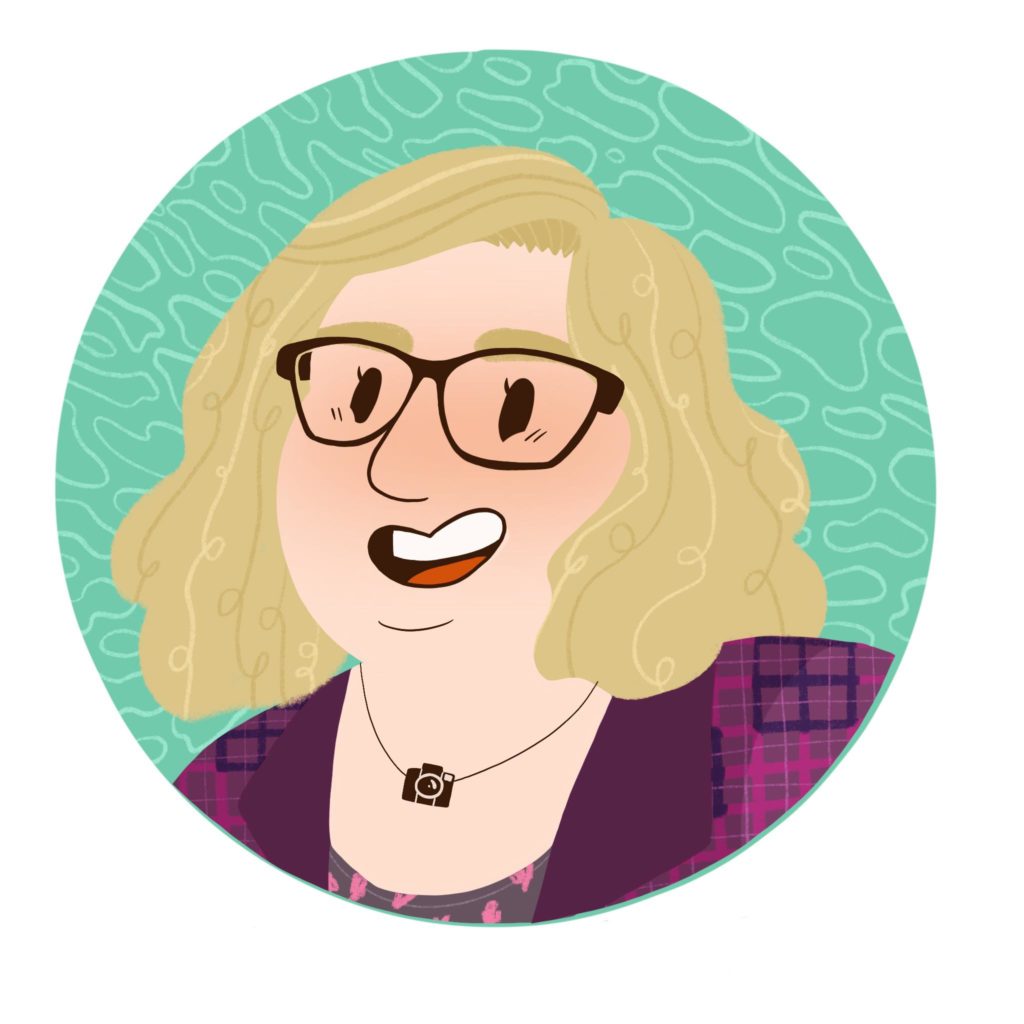
Every Monday, I send out my Body Liberation Guide, a thoughtful email jam-packed with resources on body liberation, weight stigma, body image and more. And it’s free. Let’s change the world together. Subscribe »
So, people who come to me for photography are primarily people who are pretty comfortable in their bodies already… or they’re ready for that. They’re ready to do that work. I don’t Photoshop people to look thinner. I don’t change your body. I’ll remove acne because nobody wants to look at that on the tip of their nose. I don’t want that to be what’s distracting them from seeing the rest of their body.
And also, particularly with boudoir, almost everybody gets bright red ears.
Prim Ormanovich: Oh, my gosh! That’s so true. That is so my experience. Oh my gosh! My y ears are actually like really hot and red right now.
Lindley Ashline: Everybody who listens to this is going to immediately feel their ears are red right now. Or a lot of people, the top of their chest will flush. And so that is what I’ll tone down because those are very temporary things that aren’t part of the day-to-day forms of our bodies. That’s what’s really important.
And not everybody who comes to me is like, “Oh, I’m beautiful! And I want to capture that.” That’s my job. You don’t have to think you’re beautiful. That’s my job. And so, my job is to take photos that capture in a beautiful form the way I think your body is beautiful, so that you can start learning to see that or continue to see that. And it’s just such a cool thing.
Sometimes, it’s transformative for people; sometimes it’s not. Sometimes, it’s something they really struggle with. And sometimes people end up using it kind of as exposure therapy. They’ll literally keep the photos open in a browser tab or keep their album that they buy nearby. They’ll look at it just for a few minutes a day… until after three or four weeks, they can really actually take in the whole picture.
No matter what stage somebody is in, it’s just such a cool thing to be a part of and to facilitate.
Prim Ormanovich: Yeah. I was interested when you said earlier—and I had an inkling, but I wanted to hear it from you more clearly. But when you said that you miss changing people’s lives several times a month, I wanted to get more of an insight into what that really looks like for people because I can only imagine how powerful and transformative that this can be whenever someone, like anyone, is given the space to feel positively about their body… nonetheless, someone that is extremely marginalized in day-to-day society. So, I would just love to hear what your clients’ experiences are or what things you’ve heard or witnessed or… if that makes sense?
Lindley Ashline: Yeah, it does. It does. And like I said, a lot of the folks who come to me are further along in their journey of meeting the souls in their bodies where they are, then the general public might be. It tends to be sort of an incremental thing.
But when I’m photographing, I build in actually quite a bit of time for coaching. And it’s not like a formal coaching program with capital letters or anything. But I provide a ton of information before anybody even steps in my door about here’s exactly what you can expect.
The more relaxed somebody is when they walk in the door, the more we can we can do that work together and the more they’ll like the final images because if you are uncomfortable in a photo, anybody who looks at that photo, especially you, can tell.
Prim Ormanovich: Oh, my god! That’s so true. Yeah, I’ve seen so many pictures where I look awkward. I knew I felt awkward. It just looks awful.
Lindley Ashline: And there’s this whole component of modern photography too that is focused on women looking uncomfortable. If you look at fashion photography and glamour photography, there’s a lot of like broken doll posing and dead eyes. I mean look at any fashion magazine, and you’re going to see like dead eyes and people are slumped over looking really broken and uncomfortable or dead. I just totally reject that because my job isn’t to make you conform to some bizarre, sexist standard of—
I mean, I haven’t done a lot of deep thinking around this. So I don’t have any major insights to share around why that posing is so popular in certain photography fields. But the fact that it is says that we as a culture are getting something out of that. And the fact that we as a culture are getting something out of women looking broken and dead is really disturbing to me. So, I just totally reject that.
I do pose people, particularly in boudoir because boudoir is very structured. If I don’t pose you, you’re not going to get the boudoir look and feel. So, particularly with that, I do pose.
I also do a lot of activities with people, particularly with portraits. Particularly outdoors, I might have you blow bubbles or run towards me or dance or twirl around or say something really ridiculous to make you laugh at me. And then, we’ll do actually get a really fantastic shot of you laughing. I’m more interested in your body interacting with its environment than I am in posing everybody the exact same way.
Prim Ormanovich: Mm-hmm…
Lindley Ashline: So, what that means, just to come back to the session experience, is you’re getting a ton of information beforehand because I don’t want anybody being more anxious than necessary. When you’re in front of a camera, you’re probably going to be a little jittery. And that’s totally fine. But I give you a ton of information beforehand. When you come in, we sit down and talk and we chat until you’re comfortable.
I don’t tell people this when they’re at a session, but it’s not really a secret. I just don’t want people to think that I’m not going to use any of their photos from the beginning of the session. But usually, the first 10 to 15 minutes of the session are throwaway shots… unless we’re on a really tight timeline.
The whole point is to get you comfortable enough in front of the camera that you’re actually relaxed and having fun. Or if it’s a boudoir session, I want you feeling sexy and loved and ready to put yourself out there. And just having the camera clicking gets you used to it.
And so, that doesn’t mean that I never use photos from the first part of the session, but they don’t tend to be as good as the later ones. So, I just set aside that time for “Here’s your exposure therapy in the moment.”
Prim Ormanovich: So, warm up!
Lindley Ashline: Yeah! And when we sit down at the beginning of almost every session, unless this is somebody that I know is like way… unless it’s somebody that I know doesn’t need it, like maybe it’s somebody I know personally, we always sit down and we have 60 seconds where they just rage on every insecurity they’re feeling right then, everything they hate about their body. All the negative stuff, just get it out however you want.
And then, it’s out! And then we don’t think about it for the rest of the session.
Prim Ormanovich: Wow! Because if you have in your head the whole time, “Oh no, my ears are weird… and my ears are weird in every photo… or my stomach…” or whatever, whatever your personal thing is, if you have that in your head the whole session, when you look back at those photos, that’s the only thing you’re going to see—your underarms or your belly or your ears. And so, that’s one way that I can help you prepare to see your photos before they’re even taken.
So overall, the whole thing is designed to be care for you through the whole experience. You don’t walk in cold. You’ve always got information from me first. You always feel supported through the whole session.
I tell people you have control in that session. Since I’m holding the camera, I’m in a power position. But ultimately, you’re the one who has to look at the photos. So if you’re overwhelmed, and you need me just to not point the camera at you for a few minutes… cool! Just let me know. And I will happily do that.
If you’re uncomfortable with a pose physically, and you need to move, just move. You’re not going to offend me. And then, when you get your finished photos, unless it’s someone who doesn’t live locally, I actually have them come back in in person and we go through the photos together.
If you’re insecure about your body anyway, which almost everybody is, you’re never faced with “Oh god! I have to open this gallery link online. And I have to look at all these photos by myself.” You’re never alone. You’re never unsupported through the whole thing.
And sometimes, people come back to me a week or a month later and they let me know, “Here’s the differences in my life. This was transformative” or “I had a really hard time with these, but I’m learning to love them” or whatever.
Most of the time, I don’t necessarily hear that because they’re processing with a friend or with their family or their significant other. But when I do, it’s really special to be a part of that afterwards too.
Prim Ormanovich: Yeah, that’s amazing that you’re so focused on the human and their experience and the care from the beginning throughout the whole session rather than just the finished product of the photo. And it’s just not something that—well, it’s certainly not something that we see in mass media or anything. But I feel like even just in the past with other photographers that I’ve worked with or have seen, it’s not always that way.
Lindley Ashline: Well, image is important too. Don’t get me wrong. If we’re not producing beautiful images, then I’m falling down part of my job too… and a very important part. But it comes exactly back to what we talked about, about the roots and the tree and the metaphor. The photography, when I started doing that in 2015, when I said, “I’m done here. I’m going to have to find something I really love doing,” and I started training to take photographs of people instead of trees and flowers—which I still do because I love trees and flowers—when I started doing this, it came out on that foundation because I had already been a member of the fat acceptance community for about, I don’t know, eight or nine years at that point. I was a member of the body positive community… and I was already doing these things and believing these things. So the whole thing came out of that.
And then, it kind of structured itself because I thought, “Okay, how would I want to be treated? What would be useful for me beforehand? What would be useful for me afterward?” And those two things combined, it really just kind of structured itself.
Prim Ormanovich: And I think it was on your website. And if it’s not, I apologize, but I think it was. I can swear. I saw this video of how—I’m just going to admit full ignorance here, okay? I did not realize how much photos get edited. I think that is totally new information for me. And I’m embarrassed to admit that.
But I just watched a YouTube video. I think you shared it on your website or your blog or something. It was like on a rabbit hole of your website. And it was like showing how, really, what you can do when you’re editing a photo of a body. And it just like blew my mind.
Lindley Ashline: Yeah, yeah… it’s really most of what we see.
And I rant about this all the time. So if you do go to my blog at BodyLiberationPhotos.com, you will see this. The video that you probably saw was one where—and I didn’t create this video. I just took it from YouTube and embedded it. But they took a model who is a young woman, a young blonde white woman. It kind of just was an average person. She’s thin. She’s pretty. But it doesn’t look anything at all like the end result of the video.
And then, they pose her in a certain way in a photography studio. They pose her a certain way. They light her a certain way. And then, once she’s already posing, they do her makeup, and then her hair, so that you can see the whole transformation in place. And then, they photograph her. And then, they Photoshop it. And the person who is represented at the end is just 100% different.
If you saw that person, the actual woman in the photo, if you saw her on the street, you wouldn’t know.
Prim Ormanovich: Bizarre, it was just bizarre.
Lindley Ashline: And that’s normal. That’s normal. I didn’t even realize how pervasive that is until I started training in photography—you know, in portrait and boudoir photography.
And as far as mainstream photography goes, the expectation is that you as a photographer will become a Photoshop expert. And so, any photography course that you take will include retouching of that kind. And I just decided I wasn’t going to… I said, “I don’t want to… and I’m not going to…” because if I don’t learn, I can never be tempted.
And so, I’m actually not very good with Photoshop. I very rarely use it. I use Lightroom for my photo editing if anyone’s curious. But I don’t have the skill set. And that was very deliberate because I would just rather not ever be tempted to turn someone into someone they’re not.
And with mainstream photography, the expectation of most clients when they come in is that they’re going to be transformed that way. And so, I have to be really, really, really clear in all my materials that I don’t operate that way because otherwise people will assume that I do.
I’ve had a couple of clients where they didn’t understand what they were getting into very early on before I really had my website the way I wanted it. And they weren’t happy with the final result because they thought I was going to Photoshop out their fat rolls. They thought I was going to turn them into a totally different body… because that is the mainstream experience. That is normal.
And so, you have to understand… any photo of a person that you see online or in a magazine or, I don’t know, a billboard, whatever… I was going to say “only if it’s professionally taken,” but especially if it’s professionally taken (influencers on Instagram count too), those photos have been filtered and edited and retouched. Their skin has been changed. Their eye shape has been changed. And you can change people’s smile so that it’s more of a “perfect” smile. You can change their eye shape to look more Western. You can do all sorts of things.
And the thing is that those are really cool artistic tools. But those tools only ever get us to make people will comply with the white Western impossible standards of beauty. It never goes the other way. The only way you ever see people photoshopped to look fatter is in a fetish context or trolling.
So, we never see artists who say, “Oh well, I just feel like the standard of beauty is this different thing.” Okay, yeah, there are some outliers. But it’s almost always to make people more thin, more white, their eyes bigger, or their skin smoother, their nose smaller, their ears smaller, their fingers more dainty, their fat rolls disappear, their—I don’t know, I’ve lost the word—the bones around your neck…
Prim Ormanovich: […]
Lindley Ashline: Thank you.
Prim Ormanovich: Yeah. Oh, my god.
Lindley Ashline: Or to get people more hair. And every single one of these is this white Western cis-gender standards of beauty. And as long as those tools are only being used one way—you can’t see me, but I’m making great big thumbs down motions. I’m not sure how to come across on your audio. I would blow a giant raspberry into audio. It’s not okay.
And so, there’s a growing breed of photographers who just offer something different.
New at Body Liberation Stock
Prim Ormanovich: Yeah… I’m like ferociously nodding my head. I forget that the video is off, so that my Internet’s more compliant. But I just sit over here and I ferociously nod the whole. I feel so silly.
Lindley Ashline: But really, the point that I was actually trying to make—I got off into my rant. But my point is that everything you see has been altered… everything! And the more tools we have to do this, and the better people get at it, the more it’s indistinguishable from reality.
Like a lot of cover photos that you see on magazines, there’s multiple people involved where it’s this same person who’s been photographed four times in different poses and body parts have been yanked from the various poses. And that’s also how you get Photoshop fails or somebody that has like four arms. That’s also where those come from. Those are really funny. But if you ever want to laugh, look up Photoshop files.
But everything that you see has been altered. You know how they say that a movie is based on a true story, and it has basically nothing to do with the actual story? That’s what we’re seeing. It’s like “based on a true body.” Somewhere at some point in history, there was a person who posed for a photo. But that person is so far removed from what you’re seeing that we cannot possibly meet the standards of beauty. So we might as well learn to celebrate what we’ve got because we’re human, and we have human bodies, and those bodies have wrinkles and freckles and fat rolls. And these bodies get broken and scarred and accumulate life experience. Those stories get told in our bodies.
The bodies that we see on Instagram and on Twitter and in Vogue, those bodies don’t have any stories because they’ve been removed. And when you see bodies with no stories, what are you supposed to build on that except “Oh, I shouldn’t have any stories either.” That’s really crappy.
Have your freakin’ stories. Let those stories be shown in your body because that’s what happens when you’re human.
Prim Ormanovich: You said it so perfectly when you said we’ll never meet those beauty standards so we might as well celebrate what we’ve got. Freakin’ amen… hallelujah! I could just like, “Hollah for the people in the back!” Just all of it at the same time could be every internet meme right now.
Lindley Ashline: And I want to say too that you’re not morally obligated to celebrate the body you have. Body love and body positivity, it can get turned into yet another stick for white people, primarily women, over the head with. And I don’t ever want to be out there, “You should love your body” because not everybody’s going to be able to achieve that.
I have two chronic illnesses. And those chronic illnesses occasionally make my life difficult. And I’m not ever going to be like, “I love my chronic illness!”
Prim Ormanovich: Right!
Lindley Ashline: I may make peace with that. I may make peace with the ways that my particular body doesn’t function very well. But I’m not ever going to love that. And that’s okay. And I would be really ticked off if somebody were out there making me feel guilty because I’m not ever going to achieve that.
If you can even achieve some measure of peace, if you can find neutrality, that’s really valuable too. So if you can celebrate what you’ve got… cool! Do that. But you don’t have to.
Prim Ormanovich: I use the word “body positivity” because people are so familiar with it. And when I say “body positivity,” I really mean so much else. It’s like not really what other people think of as body positivity. And I actually just kind of use it as like a bridge to get to what I mean when I say body positivity. And I agree that I don’t think that it’s my goal to try to get anyone or try to get everyone to love their body or that I think everyone should love their body. I just know that it’s not productive to hate our bodies and also to hate our bodies in the context of comparing our bodies to this on unrealistic, impossible Western white cis- standard that we just mentioned. And that affects everyone.
It’s so bizarre. I bring up the photo editing thing because I really just cannot get over how blown away I was by that. I knew that was a thing. But then when I saw how drastic it was and how she really just doesn’t look anything like she did in the beginning, I was like, “Holy shit! I really get it now.” I’m like, “I can’t believe anything that I see.”
I have to second guess everything that I see out there that people are publishing and putting out as like this kind of whatever people are trying to present as the ideal. It’s completely constructed.
Lindley Ashline: Yeah, yeah. And the thing is… this is part of the reason I really get passionate about this. The thing is that there are people who are profiting from this. And I’m not talking about my random photographer who’s photoshopping people. I mean we’re all part of that system. And the fact that I’m removing acne, I’m a tiny, tiny, tiny part of that system too. Don’t get me wrong. Nobody is perfect.
But there are companies and whole populations of people who are profiting from this. And by that, I mean beauty companies, I mean every high-powered fashion designer who is setting these standards, I mean every person who is—I hate to be honest, but every person who’s out there teaching photographers how to photoshop out flat rolls to a lesser extent.
But the point is that there are a lot of people who are already very rich and powerful who are profiting from us hating our bodies—the entire diet industry, which is right now in the US like $16 or $18 billion dollars profit a year (the whole diet industry, it profits from you hating your body), the cosmetics industry, the beauty industry, the clothing industry. Everybody profits from you hating your body.
And so, this is where it starts sounding like a conspiracy theory, but it’s all true. Everything is set up to cause you to hate your bodies, so that people can profit from it.
There’s a reason that this all exists. This didn’t come up magically. It’s not coincidental.
There is a really amazing book called Fearing the Black Body by Dr. Sabrina Strings.
Prim Ormanovich: It’s on my reading list. I can’t wait to read it.
Lindley Ashline: It’s very good, but it’s very dense. You’ll want to set aside some time for it. I’m about halfway through, and it’s just blowing my mind. It talks about how from the 1400s on, how these beauty standards have been constructed very deliberately. This is not something that started with Twiggy. This is not something that started with the Gibson girl. It’s been very deliberately constructed by powerful, white men essentially for hundreds of years.
And the reason that black bodies are particularly involved in this is because of the racist factor involved. That’s how the book connects (if you’re not already familiar with that book).
I highly recommend reading it because it really demonstrates that none of these is accidental. And none of these is coincidental. There is a reason that white Western beauty standards have gone into the impossible now with Photoshop. But there’s a reason that those are the standards […] There’s a reason that your mom tells you she’s just worried about your health. There’s a reason that wedding dresses are impossible to shop for if you’re not like a size 6. And there’s a reason that we all think we just need to lose weight for our health. There’s a reason that nobody on TV has a zit ever… unlike you with the actual human body.
New in the Body Love Shop
There’s a reason that all these happened. And I just can’t emphasize enough that we have been made to feel terrible about our human bodies that we live in for profit.
And so, the next time you feel crappy about your body, think “Who is profiting from this? Who’s taking money? Who’s being in power or not losing power because I feel like crap about my cellulite? Who’s going to make money off of that? And why should they be making money off of my misery?”
So, if you take one thing from this podcast, take “Who’s profiting for me feeling this way?” with you.
Prim Ormanovich: Amen! I’m ferociously nodding my head again. Yes! Oh, my god! I think that might be the title of this episode.
I am just like going and spiraling in my head right now because I just finished—wait, did I finish it? No, I haven’t, but I’m almost done with it—Anti-Diet by Christy Harrison. She talks in the beginning very briefly about—this is what really sparked my interest in Sabrina Springs—the history of diet culture and really how it comes out of the racist model and how, in colonization, the white people wanted to look different the indigenous people. So they made sure their diet was different. They wanted to look different. It all started there (and probably before) with white people wanting to look different than the brown people around them.
And so now when we’re extra-talking about race, I just beg people to just look—people that are already interested in health at every size and fat activism and body liberation—and remind them that this all exists within the racist paradigm and that white supremacy and diet culture come from the same rotted seed of capitalism. It’s all so interwoven.
I could totally go off on a tangent with conspiracy theories about how women were made to feel you need to lose weight for your health. They get all of your money for bullshit diets and supplements and all these things that you don’t need; or weight loss surgeries that are actually worse for your health and on and on and on; and how the medical industry profits from you, the diet and “wellness” world profits from you from hating your body.
Literally, almost every facet of our culture can profit from you hating your body.
So, I think what you just said… it’s so powerful and so true, to really step back and think who’s profiting from me hating my body right now?
Lindley Ashline: And the thing too is that changing our mindsets around this is a process too, just like how “love your body” can become yet another demand on us. Unhooking these fish hooks that have been stuck in us over time is also a process.
And so, this is also why I’m really careful not to ever set this expectation that you just shouldn’t wear make-up or you shouldn’t do this or you shouldn’t do that. We also all have to live in a world that is built this way. And so, you’re allowed to say, “I have bad skin”—and I’m putting this in air quotes as I speak—“And I am really sensitive about that. I feel better if I am wearing make-up to cover that up. And also, I realize who is profiting from me feeling bad about having acne” or various other skin conditions.
“But at the same time, I live in a world that treats people differently when they have skin that does not conform to a particular standard. And so, not only am I in this world, but I’m going to choose to take an action that gets me treated better because I need to live in this world. I need to get that job. I need to be able to participate in the dating scene. I need to live my life. And so, this is a trade-off for me.”
So, just because you realize what the power dynamics or what the profit dynamics are doesn’t mean that you’re now somehow obligated to just rise above it. You’re allowed to live in the world. Just because you realize that Vogue is all completely photoshopped doesn’t mean that you can’t read it.
But doesn’t being aware of those dynamics lets you make the trade-offs with knowledge behind it.
Prim Ormanovich: Yeah, I agree completely. And personally, I think I just am very inclined to burn it all down right now. That’s my approach. It’s like, “What?! Fuck this!” when I hear something like that. But I totally understand and agree and validate what you’re saying about how that’s not going to be where everyone is.
And I have been telling people just a lot lately that I used to beat people with proverbial sticks. I was vegan for a long time […] And I was hitting people with the “you should be vegan because it’s morally better… and would you eat animals?” stick. Did I convert anyone to veganism that way? No.
Lindley Ashline: No…
Prim Ormanovich: I’m pretty sure I could not. So yeah, I too.
I do like to bring awareness because when we plant these seeds of knowledge in someone, it’s that phenomena of “now that you know, you can’t un-know, you can’t turn away from it.” I don’t mean it to be like in an insidious or mean way. But these things don’t change. It’s not any new information. If I share it with someone, maybe it will bring a different lens for them to look out into the world when they go out to make decisions. And I hope that everyone can make these choices for themselves out of, hopefully, a place of acceptance, neutrality, love, whatever it be, and not from a place of disdain. And the more that we have these seeds and little pockets of knowledge and awareness, the closer we can be on to a path that, hopefully, one day maybe, unravel all of this weird paradigm that we all live in.
Lindley Ashline: Yeah! And that goes exactly back to where we started… with changing the world! If one person reads the one post that I wrote that has that video that we talked about with the transformation sequence, if one person reads that blog post and watches that video and comes away with “Oh, a lot of these standards that have been set are literally […],” that has changed the world.”

Every Monday, I send out my Body Liberation Guide, a thoughtful email jam-packed with resources on body liberation, weight stigma, body image and more. And it’s free. Let’s change the world together. Subscribe »
If one person goes about their day with the ability to see their body as it actually exists because they have seen compassionately [taken both of it]—I like to call it compassion and honesty—that has changed the world. If one person goes about their life being unashamed of their body, that is changing the world. It’s all activism. It’s all changing.
You don’t have to be an activist to do activism. If you can avoid imposing those beauty standards from other people or teaching them to your kids, that’s huge! That’s a huge piece of activism. Even if you’re not a capital A activist, you have changed the world. If you can opt your kid out of their school’s weight program, like the weighting at school…
Prim Ormanovich: Oh, my god! Do they still do that?
Lindley Ashline: Yeah, apparently… I don’t have kids myself, but I know people who are parents. And apparently, it’s an increasingly popular thing.
Prim Ormanovich: Ugh!
Lindley Ashline: If you can protect your child from your parents passing on that cultural value to your child, to their grandchildren, you changed the world. If you can avoid doing it yourself, you changed the world.
If you can not look at somebody on the street and lean over to your friend and say, “Why is she wearing that? She can’t pull it off,” if you can not say that once, you’ve changed the world.
There’s so many small things we can all do. And so I’d love for anybody who listens to this to take that away as well, that we don’t have the power of say, I don’t know, Calvin Klein or the head of Weight Watchers, but we all have a certain amount of power that we could use.
Prim Ormanovich: Yeah, we all have a circle of influence. And everyone’s individual influence looks different. My sphere of influence, for example, is the podcast. And everyone has something like that—like you said, whether it be their parents or their colleagues, or their children. Everyone has a sphere of influence. And that’s where individual activism, as you defined, begins… and with self-responsibility too. It just goes outward from there. But everyone has a sphere of influence… everyone.
Lindley Ashline: Yeah, for sure.
Prim Ormanovich: I was going to say one more thing about what you just said. Oh, I was going to say that I really liked your generosity with looking at people changing the world. When I was listening to all those things you were talking about people changing the world, I was feeling so excited and positive. So, I really keep that going. Any time I think…
For instance, I can confirm that you change the world with—because definitely, with watching the video, I was like, “Holy shit!” I just can’t get over it. I didn’t know. I knew, but I didn’t know it was like that. I thought it was like, “Oh yeah, they edit people,” but the way that they changed her body, it just wasn’t even the same person… I’ll stop talking about it.
I’m going to link to it so everyone else can see how bizarre it is. I’ll link to all of it, of course. But where can people find you? What do you want to say about your work and how people can work with you? Buy your stock photos…?
…which I want to say, by the way, one of them is on my website. It’s on my home page. And I love it! I was so happy to have found it because I wanted to represent bodies that looked different than mine. And so I was actually super duper excited to find your stock photography because, like you said, it was really challenging for me to find stock photography of someone doing yoga specifically that wasn’t a thin, white woman.
Lindley Ashline: Yeah, yeah. It’s such a cool thing! But that’s because, five years into this, I’m still really enthusiastic about all of it.
When Erica and I were discussing the podcast, Erica who was like, “Oh, by the way, do you happen to know a source of diverse stock photos?” I said, “I have a site for you.”
Yeah, the stock photos and all the other branches of my tree are at BodyLiberationPhotos.com. The stock photos specifically, if you want to go straight to them (although you can find them through the main site), they’re body BodyLiberationStock.com.
And I’m on Instagram at Body Liberation with Lindley; and on Facebook with Body Liberation with Lindley Ashline.
And if you look for me in URL’s on YouTube or on Twitter, if you just look for me at Lindley Ashline, I’ll come up.
Prim Ormanovich: Awesome!
Lindley Ashline: That’s primarily where I hang out.
Prim Ormanovich: I’m really excited to link to your stock photos because they’re also very…
Not that I’ve ever bought stock photos before actually, so I can’t compare the price. But it’s super doable for me to buy like four. I really appreciate the accessibility.
I went down a rabbit hole of like food and yoga and outside and sunset. I was searching all these different things. And you just have such a wide range of pictures.
And so, it was super helpful for me creating my website. I can’t wait to show it to other people.
Lindley Ashline: I love hearing that. I mean…
Prim Ormanovich: I love them!
Well, thank you so much for the work that you do and for changing the world… and for talking with me tonight!
Lindley Ashline: Yeah, yeah. It’s been a lot of fun. Thank you.
Prim Ormanovich: We’ll keep in touch!
Lindley Ashline: Sounds great!
Prim Ormanovich: Bye Lindley! Thank you.
Outro: I love you guys! Bye!
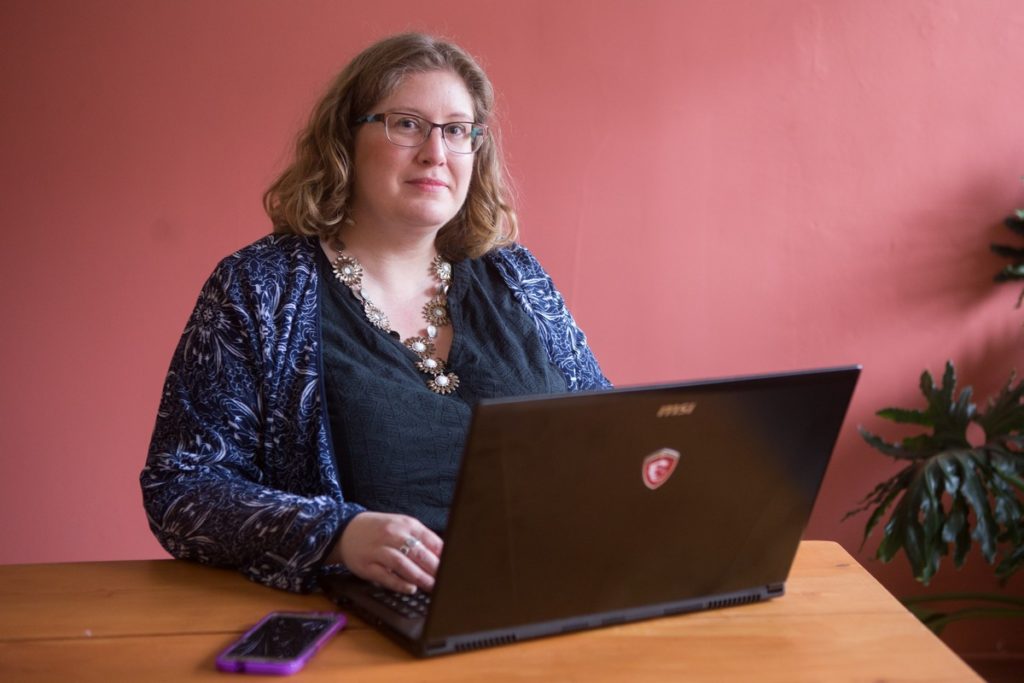
Let’s dig deep. Every Monday, I send out my Body Liberation Guide, a thoughtful email jam-packed with resources for changing the way you see your own body and the bodies you see around you. And it’s free. Let’s change the world together.
Hi there! I'm Lindley. I create artwork that celebrates the unique beauty of bodies that fall outside conventional "beauty" standards at Body Liberation Photography. I'm also the creator of Body Liberation Stock and the Body Love Shop, a curated central resource for body-friendly artwork and products. Find all my work here at bodyliberationphotos.com.

